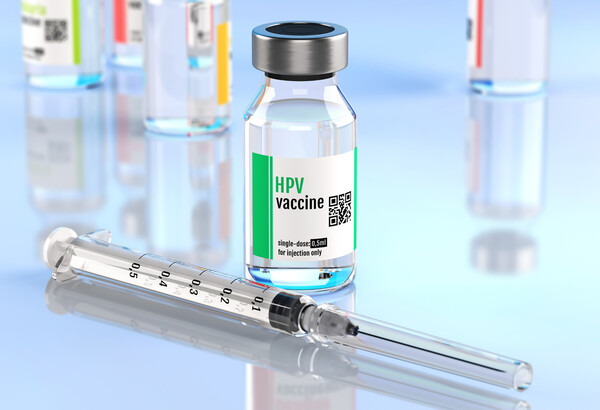
As the Korea Disease Control and Prevention Agency (KDCA) considers expanding the HPV (human papillomavirus) national immunization program to 12-year-old boys while only covering the first dose, the medical community criticized it as a "half-measure."
A single dose is not enough to provide protection, it said.
Currently, the HPV national immunization program covers female adolescents aged 12 to 17 and low-income women aged 18 to 26. Those aged 12 to 14 receive two doses of the vaccine six to 12 months apart, while those aged 15 to 26 receive three doses.
The KDCA is reportedly considering including 12-year-old boys in the HPV national immunization program but supporting only the first dose.
The medical community called for the government to support additional vaccinations by securing a budget.
"If the government limits its support to the first dose, only those who are well-to-do can receive remaining doses," the Korean College of Obstetricians and Gynecologists said in a statement on Thursday.
The results of studies on the single dose of HPV vaccine are still inconsistent, and the group noted that more studies are needed to verify its safety and effectiveness.
"Currently, only the immunogenicity and prevention of HPV infection have been confirmed, but the ultimate disease prevention effect has not been proven. Reduction of precancerous lesions, particularly in cervical and anal cancers, has not yet been demonstrated," it added.
While the United Kingdom and Australia have shifted their policies to support only the first dose of the HPV vaccine, the situation in Korea is different, it pointed out. The U.K. started supporting HPV vaccination for both women and men in 2008 and Australia in 2006, pointing out that "herd immunity is sufficiently established in those countries."
According to the group, cumulative HPV vaccination rates in Australia are 80.5 percent for women and 78.0 percent for men in 2020, and in the U.K., the average is 60-70 percent for both sexes in 2021. On the other hand, Korea has implemented a national HPV vaccination program for women since 2016, with a cumulative vaccination rate of 43 percent for women and 3 percent for men in 2023.
"Korea implemented the HPV vaccination program only eight years ago. Since it was targeted only at girls, herd immunity has not yet been sufficiently formed," it said. "We hope the government will implement a normal program that supports all vaccinations with adequate funding instead of a half-baked project with unclear effects and the risk of causing health disparities among the public."

